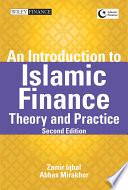
Macroeconomic Policy and Islamic Finance in Malaysia
This book offers an alternative framework for macroeconomic policy in Malaysia, derived from the universal principles of social justice espoused in the objectives of the Shariah. It attempts to holistically analyze issues related to public finance, which has been criticized for lack of transparency and justice in wealth distribution. This book explores these criticisms and discusses the principles of Islamic finance that may be applied to macroeconomic policymaking to create a better economy overall. It presents a case for a flat tax system, to make the economy more resilient to shocks, and financing methods that limit interest-rate-based debt contracts and allow greater risk sharing among the market participants on a broad scale. Using both qualitative and quantitative methods, this book models the Malaysian economy based on policies that apply the fundamental Islamic finance principle of risk sharing to demonstrate its benefits in spurring growth, promoting distributive justice, rendering the economy more stable, strengthening the potency of monetary policy, enhancing fiscal governance, and improving financial inclusion. The book will be of interest to students, policymakers, financial institutions, researchers, ministries of finance, central banks, securities commissions, and anyone interested in alternative economic paradigms.
- ISBN 13 : 1137531592
- ISBN 10 : 9781137531599
- Judul : Macroeconomic Policy and Islamic Finance in Malaysia
- Pengarang : Azura Othman, Norhanim Mat Sari, Syed Othman Alhabshi, Abbas Mirakhor,
- Kategori : Business & Economics
- Penerbit : Springer
- Bahasa : en
- Tahun : 2017
- Halaman : 293
- Google Book : https://play.google.com/store/books/details?id=06M5DwAAQBAJ&source=gbs_api
-
Ketersediaan :
Mainstream macroeconomic theory, essentially a Neoclassical-Keynesian synthesis, has dominated the practice of economics since the midtwentieth century. Monetary and fiscal policies that form the basis of this mainstream macroeconomics ...









